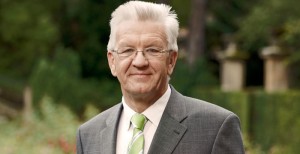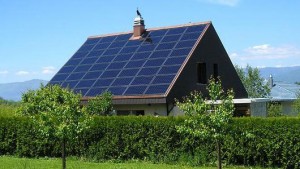But at the sub-national level, certain states within Germany are pushing the envelope even more. One of those states is Baden-Württemberg, led by the Green Party minister-president Winfried Kretschmann. Together with California, these sub-national climate hawks could play a powerful role at the upcoming UN climate talks in Paris.
Minister-President Kretschmann will be speaking at UC Berkeley’s Institute of European Studies tonight at 6pm at 100 Genetics & Plant Biology Building to discuss the climate synergies with these two subnational leaders.
In his lecture, he promises to make a “special announcement in the field of renewable energy and climate policy that will also affect California.” Let’s hope it’s something that will push the global community into action, instead of the wheel-spinning we’ve seen to date.
I used to think that the two critical governments working on climate change were China and California. China because its government leaders can snap their fingers and create a national carbon reduction program if they want. And California because of the state’s favorable political climate and history of business and technology innovation.
But I now must add Germany to the mix. The country has long pioneered pro-solar policies, with its generous “feed-in tariff” program (essentially a simple contract that pays a building owner cash for the solar power he or she generates). And of course its transit-friendly towns mean people there are less dependent on cars for mobility.
But as this New York Times article makes clear, Germany is in to win it on bringing down the price of renewables, including solar and wind:
Germany’s relentless push into renewable energy has implications far beyond its shores. By creating huge demand for wind turbines and especially for solar panels, it has helped lure big Chinese manufacturers into the market, and that combination is driving down costs faster than almost anyone thought possible just a few years ago.
As a wealthy, industrialized nation, Germany is well-positioned to lead the world in spurring the development of decarbonizing technologies. They’ve used their wealth for good purposes:
The program has expanded the renewables market and created huge economies of scale, with worldwide sales of solar panels doubling about every 21 months over the past decade, and prices falling roughly 20 percent with each doubling. “The Germans were not really buying power — they were buying price decline,” said Hal Harvey, who heads an energy think tank in San Francisco.
Of course, Germany and the rest of Europe have a huge amount to lose as the climate worsens. But whatever the motivation (and it seems out of genuine concern over carbon emissions), the world may soon be glad Germany it taking these steps.




